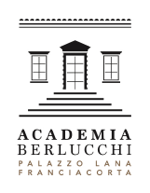ACADEMIA BERLUCCHI is a modern Agora where brilliant figures, with international reputations in different fields–and not only in viticulture and oenology–, all united in a shared vision, will exchange views to stimulate and share new concepts and proposals on subjects bearing on sustainability, stewardship of the local area, and innovation, in order to craft a vision of a more resilient and sensible future.
The Ziliani Family launched the initiative, with the active assistance in its development of Francesco Morace’s Future Concept Lab and of Grassi+Partners. ACADEMIA BERLUCCHI is the embodiment of a commitment to share an ever-expanding responsibility for Franciacorta, a unique growing area of which Guido Berlucchi winery has been the pioneer and leader for almost 60 years. The Academy will initiate and sponsor a series of events and programmes, already developed for its first three years, that will create initiatives and evaluations of its positive impacts upon the local communities, both local and in other areas.
The virtuous circle of knowledge
Figures of notable renown have responded to Berlucchi’s inaugural “call to action,” and they will bring to the public stage their influential testimony and significant vision. Flanking Arturo Ziliani, Guido Berlucchi CEO and Technical Director, will be Mario Tozzi, science educator and host of RAI3’s “Sapiens” series; art critic and historian Vittorio Sgarbi; Antonia Klugmann, chef of the Michelin-starred L’Argine restaurant in Vencò, who will craft a “frontier cuisine” eminently expressive, and respectful, of the local area; creative director and design consultant Tony Chambers, ex-director of the iconic “Wallpaper” magazine; contemporary art curator Caroline Corbetta, founder of @ilcrepaccio; and Paolo Corvo, Director of the Sociology Lab of the University of Gastronomic Sciences in Pollenzo.
The members’ participation will be moderated by RAI TV host and author Giovanni Anversa, well-known for his sensitivity to socio-environmental matters; Francesco Morace, Future Concept Lab founder and Scientific Director of Academia Berlucchi; and by Luca Zanini, Corriere della Sera journalist and passionate foraging expert, who specialises in Environmental Culture.
